T’is the season to be Jolly. Think I should write about phrase’s of the season like – “Ho Ho Ho” – “Merry Christmas”, – “Warmest wishes” – “Peace on Earth.” – But, “Good Grief Charlie Brown” is the season’s phrase that caught my attention. 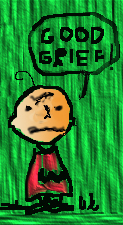
“Good Grief”, triggered some interesting internet research and I decided to tell you what I found.
My research turned up lots of invented phrases with invented words in addition to Good Grief – “Holy cow, holy mackerel , my gosh, darn, gee wiz, gosh darnit, gee whillikers, the good book, holy cats, and the list went on”. Oh my Gosh, where do these words come from – are they really words? – Some of my research says “blame it on the kids”
Many religions have renounced the Christian’s use of mean and violent words. Parents told kids that “swearing” at a person in anger was unacceptable.
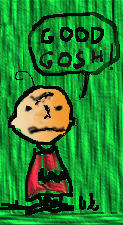
Some parents said that oath-taking is unnecessary. You must tell the truth without swearing about it. Swearing on the bible to tell the truth was just another way of taking the name of the lord in vain. That is unacceptable. So, you see, kids had to be careful with their choice of words. Using “dirty words” to express themselves and still live within the parental rules is the reason kids invented new words.
For example, Gosh has no literal meaning. It’s a euphemism, which means it’s a word that is used instead of a taboo word. In this case the taboo word is God when used this way: Gosh Darnit.
Found on the internet: Gee Whiz comes from Dia uas (pronounced “jee-a ooas”), Irish for “Great God!” – “Holy Mackerel!” This actually comes from the Irish Mac ríúil (royal son, “son royal.”). It’s just a euphemism for “Holy Jesus!” — not a fish!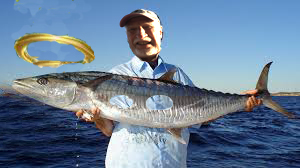
More from the internet: Dia is the Irish word for God. Holy Gee literally just means “Holy God” and was probably considered a lighter way to say this, just like “Gosh darnit” or “Dag nabbit” avoids a serious curse which is technically a sin in Christianity.
Still more from the internet: Holy Cow has nothing to do with Hinduism and comes 100% from Irish American slang — like a lot of other “Holy” expressions.
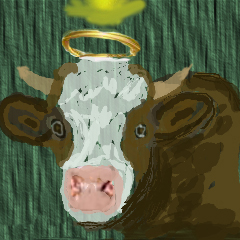 Holy cow is an anglicized version of Holy “cáthu” (pronounced more or less like “cow” in Irish Gaelic). Cáthu means “sorrow.” It was a slang expression on the streets of Irish Brooklyn, Boston, and Chicago back around 1900…. It has literally nothing to do with cows!
Holy cow is an anglicized version of Holy “cáthu” (pronounced more or less like “cow” in Irish Gaelic). Cáthu means “sorrow.” It was a slang expression on the streets of Irish Brooklyn, Boston, and Chicago back around 1900…. It has literally nothing to do with cows!
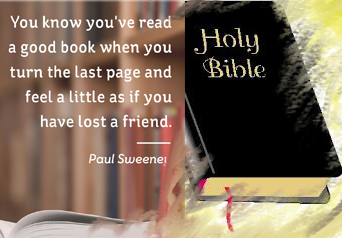 When one knows that the word “good” used to also have the meaning of “holy” (this meaning is preserved in expressions such as “the Good Book” or “Good Friday”) , one can plainly see that “Holy cow” readily translates into Charlie Brown’s favorite expression, “Good grief !” ( My note to you: Did you get the meaning of that last sentence? I did not plainly see the relationship of Holy cow and “Good Grief.”)
When one knows that the word “good” used to also have the meaning of “holy” (this meaning is preserved in expressions such as “the Good Book” or “Good Friday”) , one can plainly see that “Holy cow” readily translates into Charlie Brown’s favorite expression, “Good grief !” ( My note to you: Did you get the meaning of that last sentence? I did not plainly see the relationship of Holy cow and “Good Grief.”)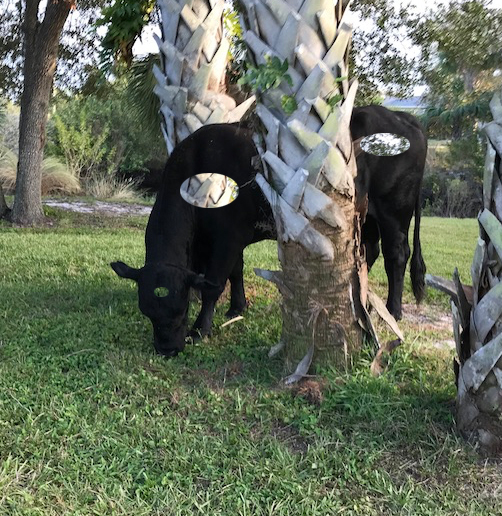
Ever onward: Can grief really be good? Experts say when bad things happen, grief is good for the recovery. They say you should let yourself grieve in your own way and time. However, my research found no tie between grieving over a loss and the phrase “Good Grief”
I did find that, Good grief !” is a minced oath – that is, a softened form of another exclamation that might be deemed blasphemous. In this case, the other exclamation is “Good God!” But “Grief” – 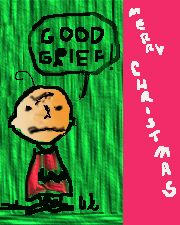 The only relevant feature of the word “grief” that I could find for this phrase is it’s initial G. Good Grief, I was looking for a much more definitive answer for the source of “Good Grief.”
The only relevant feature of the word “grief” that I could find for this phrase is it’s initial G. Good Grief, I was looking for a much more definitive answer for the source of “Good Grief.”
Anyway, sure hope you enjoyed some of my findings. With my internet research being completed for now, I can say to you – “Merry Christmas, Happy New Year”

Leave a Reply